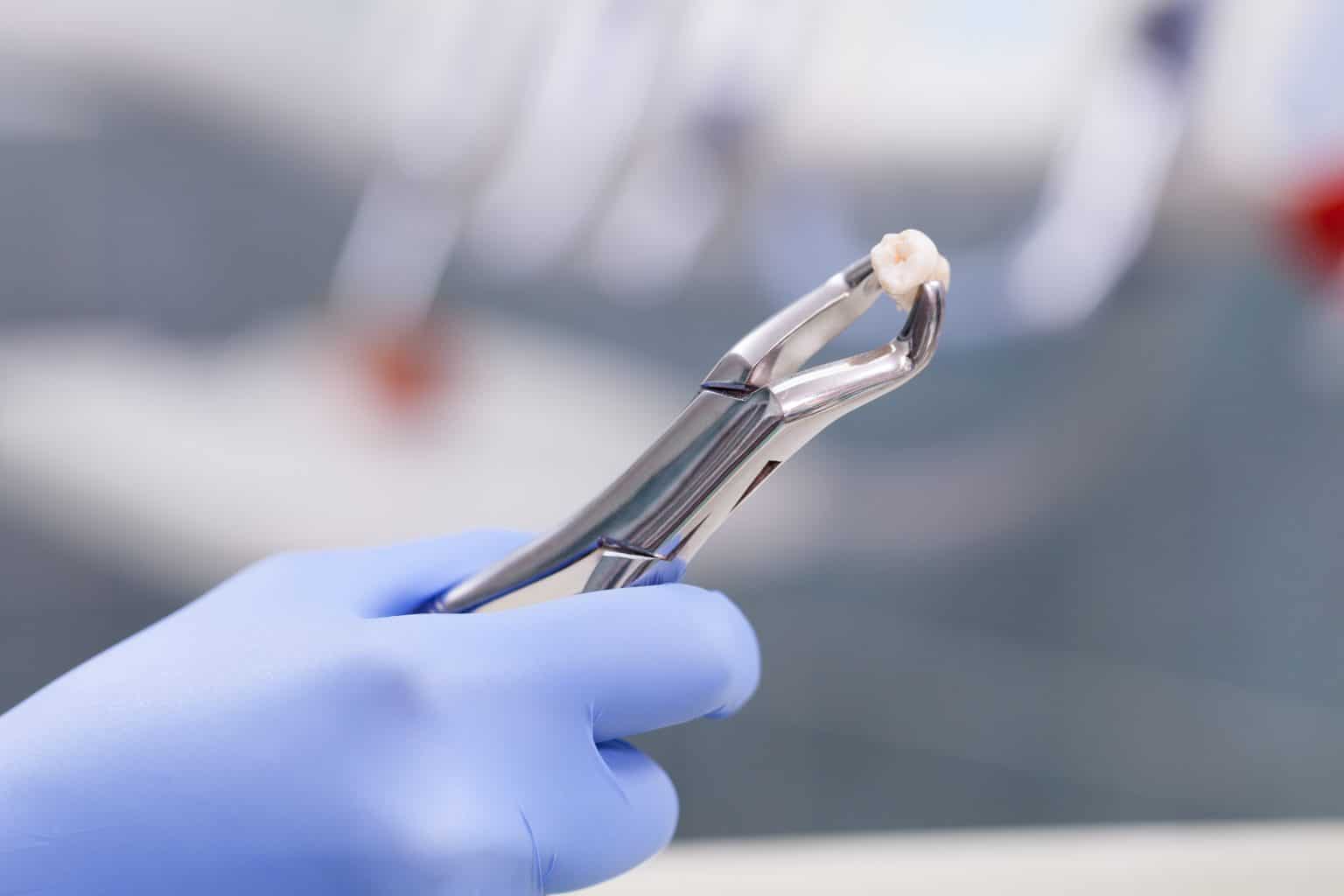Wisdom Tooth Extraction in Templestowe & Manningham
If you’re experiencing discomfort or pain from your wisdom teeth, We offers safe and effective wisdom tooth removal services to help you!
Wisdom teeth usually erupt during a person’s late teens or early twenties on either side of the upper and lower jaw. Often, they cause no problems. You may go your entire life without a single wisdom-teeth related problem. However, not everybody is so lucky.
If there is insufficient room in the jaw, wisdom teeth may need to be removed to avoid complications. At Templestowe Street Dental, we’ve performed countless wisdom tooth removals. We can determine if the procedure is necessary and carry it out promptly with a minimum of discomfort.
Contact Us

When is Wisdom Tooth Removal Necessary?
Sometimes the need for wisdom tooth removal is made apparent by excruciating pain. Often, however, the issues caused by wisdom teeth are less obvious. Discomfort as wisdom teeth erupt is not the only indication that they may need to be removed.
The teeth may not have enough room to break through. Or, they could be on an awkward angle. If your wisdom teeth push against your back molars, they could cause damage and warp the alignment of your jaw. This would create problems with your bite.
Wisdom teeth which have partially erupted can be particularly difficult to clean. Pockets of cavity causing bacteria can thrive around wisdom teeth. The only way to know for certain whether your wisdom teeth are likely to create dental woes is to consult your dentist.
Contact Us
Feeling Nervous About Wisdom Tooth Removal?
Modern dentistry is a marvellous thing. Today, wisdom tooth removal doesn’t have to be an ordeal. For particularly anxious patients, or those who require complex procedures, sleep dentistry is a great option.
What are Wisdom Teeth?
Wisdom teeth, also known as third molars, are the last four teeth to develop in the mouth and typically emerge during the late teen years or early twenties. Unfortunately, the jaw is often too small to accommodate these new teeth, resulting in pain and discomfort.
When teeth emerge from the gum during childhood and adolescence, they gradually develop into molars, which are also known as flat teeth. The third molars that grow in the back of the mouth are referred to as wisdom teeth. However, the lack of space in the jaw can cause these teeth to grow in a problematic way.

Why Do Wisdom Teeth Need to Be Removed?
If your wisdom teeth are not causing harm to your other teeth, your dentist will not recommend their removal. However, if they are impacted, they can negatively affect your oral health. Impacted teeth typically do not emerge in a straight line and can result in increased sensitivity in the gums, damaged teeth, and an increased risk of periodontal disease due to plaque and bacterial build-up. Additionally, they can cause damage to neighbouring teeth, an increased likelihood of developing a tooth abscess, and bacterial infections of the tongue and throat.
What Are the Symptoms of Wisdom Teeth?
Symptoms of wisdom teeth include swollen or red gums, a swollen jaw and surrounding area, increased jaw sensitivity, unpleasant taste or breath, and stiffness when opening and closing the mouth. If you are experiencing any of these symptoms, it’s best to visit your dentist for an evaluation.
Wisdom teeth usually erupt between the ages of 17 and 25 and can cause various dental issues if they become impacted or don’t have enough space to grow properly.

How Are Wisdom Teeth Removed?
During your consultation, our dentists will examine your wisdom teeth and determine whether they are likely to cause any problems. If extraction is necessary, your dentist will use local anaesthesia, sedation, or general anaesthesia to numb your mouth and/or suppress your consciousness during the surgery.
An incision will then be made in the gum to expose the tooth and bone, and if any bone is blocking access to the root of the tooth, it will be removed. If the tooth is difficult to remove, it may be divided into several pieces before being extracted.
After that, the extraction site is cleaned, and any remaining debris is removed. The site is stitched up if necessary for healing before gauze is placed over the site to control any bleeding and assist the formation of a blood clot.
Do I Need to Get My Wisdom Teeth Removed?
The best way to determine whether you need to have your wisdom teeth removed is to visit one of our experienced dentists at King Street Dental Group. Our dental professionals will review your dental history, take X-rays, examine the general health of your mouth, and assess the condition of your wisdom teeth. If our dentists detect any issues with your wisdom teeth, surgery may be recommended to have them removed and alleviate any discomfort.

Why Get My Wisdom Teeth Removed?
If your wisdom teeth are causing pain or oral health problems, it is advisable to have them removed as soon as possible. The most common reasons for wisdom teeth removal include tooth decay, gum infection, pressure pain, orthodontic reasons, prosthetic reasons, or cyst formation.
Before the procedure, your dentist will conduct a thorough examination and may take X-rays to evaluate the position and condition of your wisdom teeth.
After the extraction, you may experience some swelling, discomfort, and bleeding, which can be managed with prescribed pain medications and following post-operative instructions.
It’s important to maintain proper oral hygiene during the healing process and follow-up with your dentist for any necessary check-ups or follow-up care.

Where Can I Get My Wisdom Teeth Removed?
King Street Dental Group in Templestowe is here to assist with all your wisdom teeth removal needs. Our highly trained dentists have the experience and expertise to provide you with the best possible care, ensuring a smooth and comfortable procedure. Contact us today to schedule a consultation and take the first step towards optimal oral health.
Frequently Asked Questions
Wisdom teeth, also known as third molars, are the last set of teeth to emerge in the late teenage years or early twenties. As they grow, the jaw is often too small to accommodate them comfortably, leading to pain and complications such as damaged or impacted teeth, gum sensitivity, increased risk of periodontal disease, and bacterial infections. If they are likely to cause problems, dentists may recommend a surgical extraction to prevent future issues.
It’s best to visit your dentist for an evaluation and assessment to determine whether your wisdom teeth require removal. At the consultation, your dentist will review your dental history, take X-rays, assess the general health of your mouth, and examine the condition of your wisdom teeth. They will recommend removal if there is a risk of further oral health complications, such as impacted teeth or increased sensitivity at the back of the gums.
Recovery time can vary depending on the complexity of the extraction, but it typically takes a few days to a week to recover. It’s normal to experience swelling and pain in the area after the surgery, but this can be managed with pain medication and ice packs. Your dentist will provide specific aftercare instructions, including what to eat and drink, how to keep the extraction site clean, and when to follow up.
Like any surgical procedure, there are some risks and complications associated with wisdom teeth removal. These include bleeding, infection, nerve damage, dry socket, and sinus problems. However, these risks are relatively low, and your dentist will take precautions to minimize them.
The cost of wisdom teeth removal can vary depending on factors such as the complexity of the extraction and the type of anaesthesia used. However, most dental insurance plans cover a portion of the cost of the procedure. At King Street Dental Group, we offer competitive pricing and work with our patients to ensure that they receive the care they need at a reasonable cost. We also offer flexible payment options and can help you navigate your insurance coverage.
Contact Us
No matter what kind of dental work you need—or even if you just need a consultation to discover the best path of action forward—King Street Dental can help. Call us now on (03) 8842 4506 or contact our friendly team online.
Book online